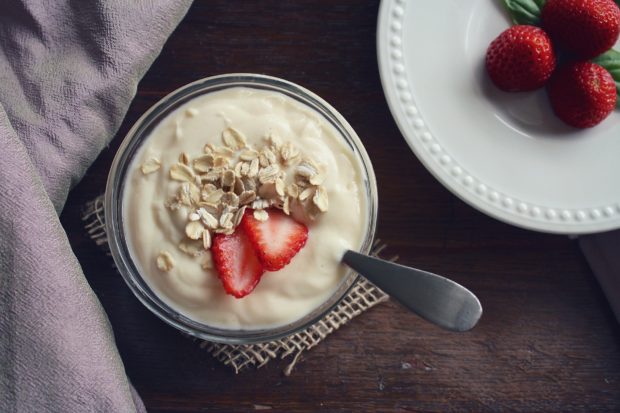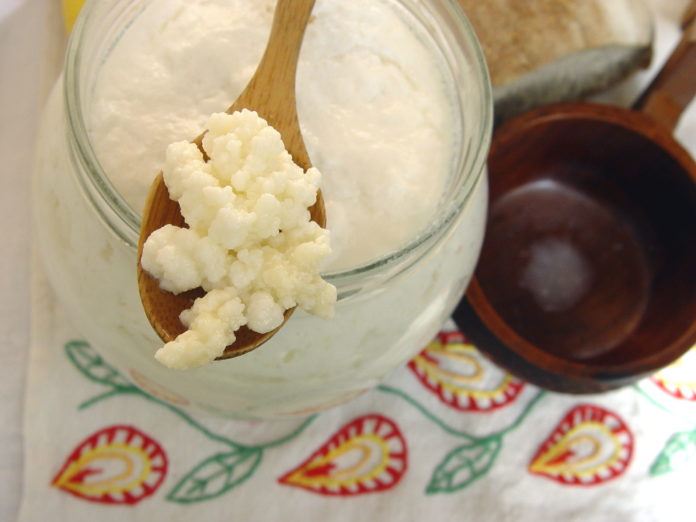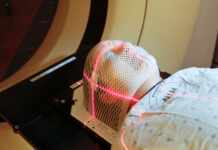A lot of people have come across the term, but really don’t know what it is. Yes, we’re talking about what are probiotics to understand it’s usefulness and why we need it.
You might be surprised to know that probiotics and alcohol are different and probiotics are live bacteria and yeast that are good for your stomach. Well, as they say, everything in moderation is good. So, you need some of these to exist in your body to make it function properly.
Live bacteria and yeasts are extremely beneficial to the digestive system. Most of us think that they are germs that causes diseases. However, your body is full of bacteria that are both good and bad. Probiotics help in keeping your gut very healthy.
Probiotics are living microorganisms that have multiple health benefits when consumed. Supplements and foods like yogurt have probiotics elements in them. Doctors prescribe them to treat the digestive system. There is much more to it, and we’d guide you through knowing what are probiotics.
Table of Contents
How do Probiotics work?
A continuous research is being done to identify the exact ways of how probiotics work. However, here are some ways they keep you in good health:
- When you consume antibiotics, you keep losing good bacteria from your body. Ingestion of probiotics supplies them back to the body.
- Probiotics help in maintaining the balance between “good” and “bad” bacteria. This is equally important as your balanced diet.
Types of Probiotics
Certain types of bacteria are categorized as probiotics. All of them have different beneficial effects on your body. However, mostly they are from two categories. Question your doctor about which one can particularly help you. But first, know what they are:
Bifidobacterium
A number of dairy products have the presence of Bifidobacterium. It helps you ease out any symptoms of the disorder in the large intestine which is known as irritable bowel syndrome.
Lactobacillus
One of the most common probiotics is lactobacillus. Fermented foods like yogurt and many others have the presence of this bacteria. Usually, when you have diarrhea or cannot digest lactose, lactobacillus may help you.
Saccharomyces boulardii
Yeast found in probiotics is called Saccharomyces boulardii. Diarrhea and other digestive problems can be fought by it.
Probiotics treatment
Probiotics act as a catalyst to send food to your gut. By doing this they affect the nerves that control the gut movement. Scientists are still researching the exact cause of health problems as well. However, there are a few conditions in which probiotics are helpful. These are specified and given below:
- Inflammatory bowel diseases (IBD)
- Irritable bowel syndrome
- Diarrhea caused by antibiotics
- Infectious diarrhea (which are caused by viruses, bacteria, or parasites)
- Promotes heart health
Research has also proven probiotics to be useful to other body disorders. These are like:
- Improved oral health
- Vaginal and Urinary health
- Improved skin conditions, like eczema
- Prevention from Allergies and Colds
- Reduces Depression
Probiotics medicines
Certain drug companies make supplements that have probiotics in them. But you need to check if they are certified to be sure of how it works. Moreover, the Food and Drug Administration (FDA) regulates probiotics as food intake and not medicines. Thus, you need to be sure of the medicines you buy to add probiotics to your body.
Typically, supplements and probiotic foods are said to be safe for many. But if you have an immune system problem or other ailments, avoid taking them. Moreover, in many cases, people can face mild side-effects. You might have diarrhea, an upset stomach, bloating or gas. Other allergic reactions can be seen as well. Therefore, its always best to take a doctor’s advice before your intake of any probiotic foods or supplements.
What are probiotics foods
You will find several foods that are commonly found and eaten by us. Here are 10 such foods that have a high content of probiotics in them. These are:
Yogurt
One of the best-known sources of probiotics is yogurt. Researches have suggested probiotics to improve lactose intolerance. Which also curbs stomach problems like gas, diarrhea and other issues.

Miso Soup
A fermented soybean paste is made into a salty soup. It is a very popular Japanese breakfast. Which is very high in vitamin B, low in calories and acts as a protective antioxidant. Furthermore, this miso soup is filled with probiotics that activate your system well.
Sauerkraut
A fermented thinly sliced cabbage is sauerkraut. Through the process of pasteurization good and active bacteria are killed. It is always best to choose the unpasteurized one. Sauerkraut is very similar to kimchi, a spicy Korean dish. Both of these dishes are filled with immune-boosting vitamins and retrains infections.
Soft Cheeses
Researches have said that not all fermented soft cheeses, namely Gouda, can let probiotics survive through to the gut. However, many soft kinds of cheese have been proved to be extremely good for digestion.

Sourdough Bread
San Francisco is famous for making sourdough bread. This is a pack of probiotics that helps you digest.
Kefir
From the Caucasus mountains, shepherds carried milk that fermented into a fizzy beverage. It was named kefir and the consistency was thick and creamy. Also, the tangy flavor made it taste a lot like yogurt. Kefir had strains of probiotic bacteria and a variety of yeasts. If you can get your hands on those, they will be good probiotics for you.
Acidophilus Milk
Acidophilus milk is one of the easiest found milk. The milk has been fermented with bacteria, thus contains probiotics. While purchasing this, you often see the label called sweet acidophilus milk. Buttermilk also has a high content of probiotics.
Tempeh
In Indonesia, fermented soybeans are made into a patty. Patty is a natural antibiotic that fights the bad bacteria. Usually, people describe the tempeh to be nutty, smoky and much like mushrooms. They happen to be very high in protein and replaced by meat sometimes.
Sour Pickles
A solution of water with sea salt helps good bacteria to grow. That makes the pickle sour and further helps you digest. However, while choosing pickles, keep in mind not to choose the one that is fermented with vinegar. Naturally fermented pickles are always rich in probiotics.
Probiotics Supplements
You will find probiotics not only in food but also in medicinal supplements. They come in different forms, like a tablet, capsule, syrup or even powder. Even though these supplements provide probiotics, they do not supply the nutrition food gives you. In some cases, these medicines are not good for some. Being cautious is extremely important.
Note: Consult your doctor before you take any supplement.
Probiotics food vs. supplements
Do you know that your stomach is home to microorganisms? Yes! You read that right. More than a trillion living microorganisms play an important role in your overall health well-being. Roughly 1-3% microbes make up the weight of your body. That helps in boosting metabolic, digestive and immune functions when they are in abundance. It is misfortunate that when you age or make lifestyle imbalances, the number of microbes decreases. These can lead to several health issues.
In accordance with, the World Health Organization (WHO), probiotics are living microorganisms, predominately bacteria, and yeasts. They bestow numerous health benefits when consumption is done adequately. Some of them are given below:
- Modulation of the immune system
- Enhances nutrient absorption
- Improves skin health
- Relieves stress and enhances mood
- Removes waste and toxins from the colon
- Controlling gastrointestinal problems
All these positive impacts of probiotics give us more reasons to call it ‘good’ bacteria. They are considered to be crucial for optimal health conditions.
Are you concerned about what probiotics you need to consume? Foods, supplements or both? Read on, and you will know exactly.
Advantages of getting probiotics through supplements:
1. Supplements allow you to be better targeted
Procurement of probiotics through supplements has evident advantages. Supplements have better control of the bacterial strains of your intake. Further, helping you to address a specific health problem.
2. Supplements provide a probiotic diversity
An advantageous opportunity is provided by supplements. As you can select what multi-strain blend of microbes you ingest. On the contrary, yogurt has only one or two strains of probiotics.
3. Probiotics are allergen and sweetener free
Multiple probiotic supplements are free from some allergens. Commonly found allergens like wheat, gluten, soy or dairy are not present in many supplements. This makes it easy for you to add them to your diet. Otherwise, dairy-based or soy-based probiotic-rich foods are not consumed by all.
Many probiotic supplements are found to be sugar-free. In this way, you can avoid having added sugar or sweeteners. Unlike, probiotic foods like kefir, yogurt, and kombucha. Sugar further interrupts the balance of beneficial bacteria in your body. Hence, making sweetener-free supplements extremely advantageous.
How to include micronutrients?
Probiotic-rich foods provide micronutrients to your body. As a result, whole foods provide better nutrition to your body than supplements do. Recently, studies done by researchers have evaluated the advantages of consuming probiotics through food than supplements. Studies state that the levels of nutrients have an overall increase in the case of supplements, while probiotic foods have distinct benefits.
For instance, micronutrients are supplied by probiotic-rich foods. These nutrients are very vital for the body’s functionality. Plants are fibrous, which protect your body from oxidative damage and stress. Therefore, keeping your gut healthy.
Prebiotics are food for the probiotics in your body. Consumption of fibrous foods acts as prebiotics. Just like you need food to function well, probiotics need their food too.
Do all fermented food have live probiotics?
A number of foods have probiotic bacteria in them. Some cultured dairy products are yogurt and kefir. Fermented probiotic-rich foods are namely, kimchi, sour pickles, sauerkraut, tempeh, natto, kombucha, and miso.
Probiotic bacteria must be alive when you are consuming food. Only then you will procure its probiotic benefits. Survival of probiotic organisms depends on factors like storage and food processing. It can be challenging but here we will read through some useful tips to keep the probiotic bacteria viable.
- While you purchase yogurt, always check what the container reads. “Active culture” or “live cultures” is what you’re looking for. Because not all yogurts have live probiotics.
- During the process of pasteurization live bacteria are killed. So, always choose sauerkraut to be unpasteurized.
- Vinegar also kills probiotics. Hence, always look for naturally fermented sour pickles than the ones made from vinegar.
Consideration of lifestyle factors
As you are aware that you can get probiotics from both, food and supplements. Both have their own advantages and supplies adequate amounts of probiotics to the body. However, caparisons cannot be provided due to a lack of clinical trials.
But your lifestyle will define the best option between food and supplements. A few factors to be considered while choosing foods versus supplements are given below:
Do you consume different types of probiotic-rich foods daily?
- If your answer is yes. Good job!
By doing this, you are giving your body ample amounts of nutrients and vitamins. In this way, you are also providing your body with strains of probiotics as well. That are enhancing the intestinal balance and microbial diversity. Continue eating those probiotic-rich foods!
- If your answer is no. Don’t worry! We have an alternative for you.
Just in case you have any food allergies or a hectic schedule or more, just consult a doctor and give him/her your reasons. A high-quality probiotic supplement can be added to your diet which will be more practical and easier for you to consume.
Are you addressing any specific health problem or symptoms?
- If your answer is yes!
Consult a health professional to identify the specific bacterial strains you require. Supplements give you the privilege to select any strain you specifically need. Unlike in cases of probiotic foods, you tend to have lesser control on strain-specificity.
- If your answer is no.
You can go ahead and eat probiotic-rich foods in abundance to maintain your immune system and a healthy gut.
Choose your probiotic supplement wisely!
Always choose your probiotic supplements that are trustworthy and well researched. Food and Drug Administration (FDA) do not regulate the dietary probiotic supplement. As a result, the brands are not being revised by anyone and is not an approved product.
Recently in the U.S, it has been analyzed that 5 out of 19 brands sold, do not provide several live microorganisms (probiotics) mentioned on their label. Some even contained contaminated bad bacteria and molds.
There is no assurance of what you might be consuming. So, do your research well and choose a trustworthy brand that you can rely upon.








